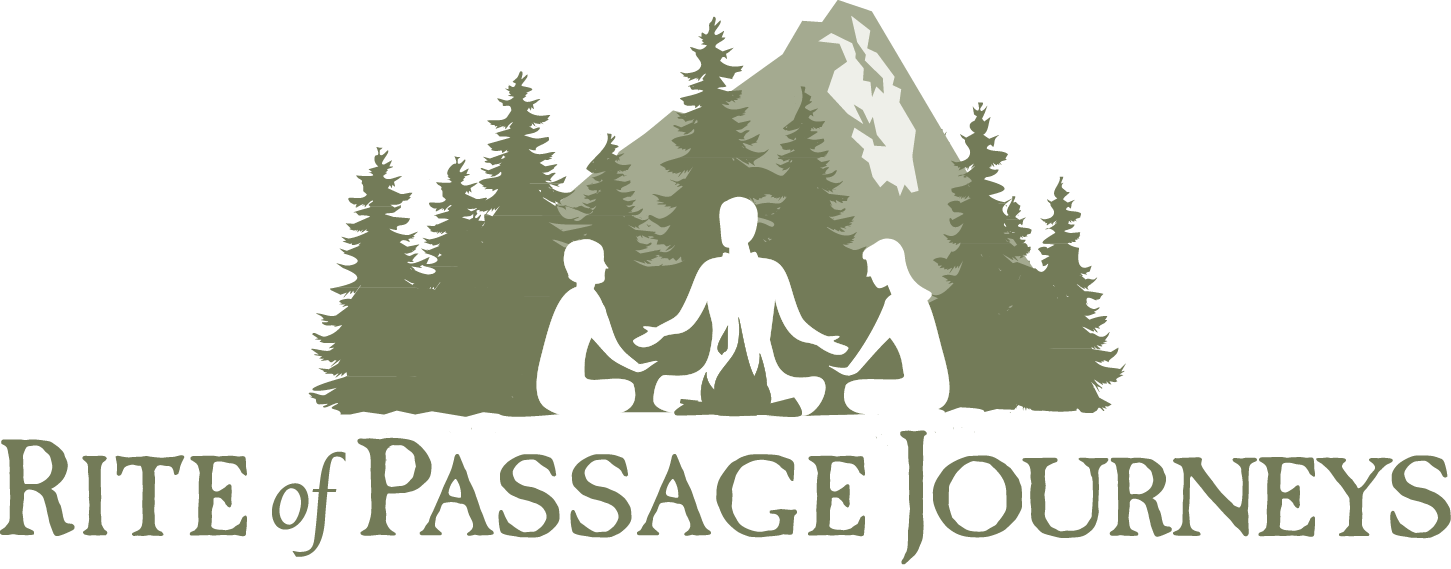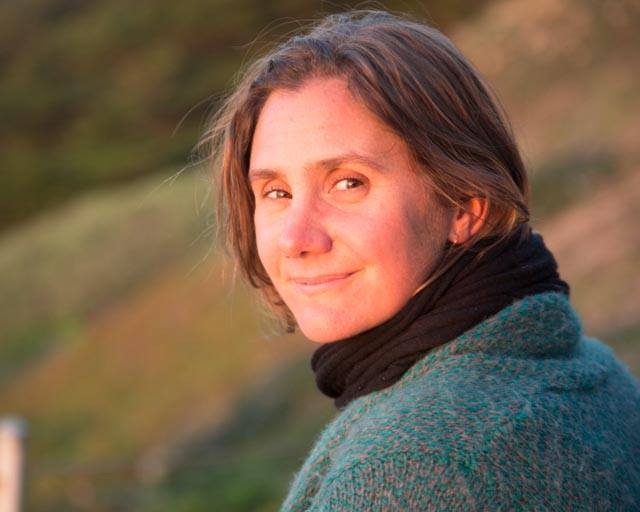Today, Journeys remembers our founder Stan Crow, who passed away on November 15th, 2009. Stan was an outstanding mentor for many in their youth and young adulthood, devoting much of his life to providing meaningful coming of age experiences. One of those young people is our former Executive Director, Darcy Ottey, who in her new book shares the impact Stan had in her life and the lessons on mentorship his legacy left behind.
Below is an excerpt about Stan from her upcoming book, Rites & Responsibilities: A Guide to Growing Up, which is the culmination of years of work centered around restoring rites of passage, and is written for young people, as well as families and youth workers alike. We invite you to join us in supporting Darcy’s launch of her book through her Kickstarter, which is in its final days.
Rites & Responsibilities: A Guide to Growing Up
By Darcy Ottey
Mentors
“My grandma has been just an unbelievable mentor. I would not be the same if it weren’t for the impact she’s had on my life. It’s just been monumental on my way of thinking about things and seeing the world. ” –Zachary, age 22
When I ask young people about their mentors, the vast majority talk about their parents. While it’s wonderful when young people can learn from their parents and confide in them, mentorship through initiation into adulthood needs a different sort of support. It needs the mentorship provided by other adults, blood or chosen relatives. When young people are stepping into adulthood, parents and primary caregivers are in the midst of their own rite of passage as well, needing their own support to loosen the strings.
I first met Rite of Passage Journeys’ founder, Stan Crow, when I was thirteen years old. He must have been about 50 at the time. Relatively short and rotund, quite bald on top, he reminded me of a leprechaun. He was part of my life for decades, as my mentor, supervisor, and more.
Stan passed away suddenly at age 68. The night he died, a spontaneous gathering came together, to celebrate him, share our grief, and to share stories. One by one, each of us shared. Every person echoed the same theme: Stan touched us by trusting us to be more than we thought we could be, and so we became more capable than we had known we could be.
We were not the only ones. At Stan’s memorial, five hundred people showed up to honor this man who had touched them deeply, many of them through direct, one-on-one mentoring in their youth and young adulthood. This capacity to be present with young people, and offer blessings in the form of listening and encouragement, continued as a theme throughout his memorial.
Stan’s death devastated me. With each challenge I faced, I lamented that it would’ve been Stan that I would have turned to if he were still alive. What would he have done for me? I wondered. The answer was simple. He would’ve listened, and offered me his blessings. Simple acts, profoundly reassuring results.
Talking about working with young people, Stan frequently said, “if you’re talking more than 10% of the time, you’re talking too much.” His listening had a powerful effect of instilling my faith in myself, in my own wisdom and capabilities.
I use the term mentor because that was the term Stan used. Over decades of working with young people, he began to see that one of the biggest needs was for mentors. He saw this as an essential element of rites of passage. He was very clear: young people cannot initiate themselves, nor each other.
After his death, I felt left behind with riddles to decipher. How was I to make sense of a life lived quietly as an example? There was so much I hadn’t yet thought to ask him, and that I didn’t understand. Since then, I have come to discover the powerful legacy that Stan left with me: when I think I cannot make it through a challenge, Stan is always there, in my mind and heart, to remind me that I can make it. What’s more, I must, because the needs are so urgent. What greater legacy can an elder offer?
You may not have a Stan in your life, but you have someone that you can ask to serve as a mentor. But it’s important to be discerning about who you invite into your inner world! There are many folks who wish to be of service, and sometimes they wind up making it more about them than about you. Mentorship relationships are reciprocal, but you shouldn’t feel like someone is putting their needs onto you. If you don’t really feel like they are listening to you, or what they’re saying doesn’t resonate or it seems more about them than you, they might not be the mentor who can support you on this journey.
Since many adults have not had the opportunity to receive mentoring themselves, they may not be very skilled at offering it. You can support those mentoring you by naming clearly what you need. Usually, this has to do with listening, and asking questions. You may want someone to reflect what they are hearing you share, but to be sparing in offering you advice. Dante, age 21, describes it this way: “A mentor never tells you what to do. Sometimes they tell you things that you really need to hear, but they never tell you how you should act.”
In looking for mentorship, look for someone who honors and respects your creativity in the world. You want to find someone that will respect the natural drive for innovation and the creation of new ways of doing things that are part of the gift of the time of life that you’re in. Look for someone you also respect, and can trust that if you ask for confidentiality they will honor it.
Exercise #18: Reflect on someone that you would call a “mentor” in your life so far. What did they provide you with? Consider writing the person a letter, and specifically thanking them for what they offered (you don’t have to send the letter unless you want to) . If you haven’t had anyone serve in this role, what comes up for you?
Exercise #19: Identify one or two older people in your life, who can listen and be open-minded as well as call you on your stuff, and ask them if they’d be willing to serve as mentors throughout this journey. Don’t choose someone because you feel like you “should!” Practice listening to your intuition. Who feels right to ask to support you in this way, and choose accordingly. When you make the ask, have a conversation about what you know of what you need, like asking for them to listen, ask you questions, perhaps give sparing suggestions. If they agree, identify a schedule of how often you’ll check in with them (I encourage at least once/month to start).
Remember, if you need them, it’s your responsibility to reach out! I have a standard of rarely, if ever, checking in with my mentees because I want to give them space to learn and grow, and to practice reaching out for help if they need it. This practice (of knowing when you need help, and asking for it) is part of the power of having community-based mentoring relationships.
————————————————————————————————————————————————————————————————--
Former Journeys participant, mentor, and Executive Director Darcy Ottey is currently fundraising for Rites & Responsibilities: A Guide to Growing Up, her forthcoming book published by Lost Border Press. Her fundraising goal is $20,000 total by November 19th, which supports young creative professionals to design, edit, illustrate, and market the book, as well as fund an initial print run. Contributions can be made through Kickstarter (check out the great rewards she's offering) or through this separate platform for tax-deductible gifts!
Darcy Ottey
Darcy Ottey (she/her) is a cultural practitioner, facilitator, anti-racist educator, and Co-Founder and Co-Director of Youth Passageways, an intergenerational and cross-cultural network supporting the regeneration of healthy passages into mature adulthood for today’s youth. A queer, white, able-bodied woman in her 40’s from a mixed middle/working class background, rites of passage have been part of Darcy’s life since her coming of age journey when she was 13. The descendant of Quaker settlers, British coalminers, and Ukrainian peasants, her early encounters with nature and ceremony instilled in her a deep sense of belonging and connection with the more-than-human world. Her formal and informal education brought understanding of the colonized and colonizing contexts of these experiences. Her work is all about synthesizing these experiences by: supporting white people and others with privilege in dismantling systems of oppression internally and externally; building resilient networks of relationships across difference; and building community capacity for meaningful acts of redistribution, reparations, and rematriation. Darcy is grateful for her teachers, mentors, family, and community. She loves dancing (especially under the full moon), learning to make Slavic folks dolls, and preserving food and plant medicines. She (sometimes) makes her home along the Methow River in Okanogan County, Washington, the territory of the Mətxʷú people and the many beings that survive and thrive throughout the watershed.



